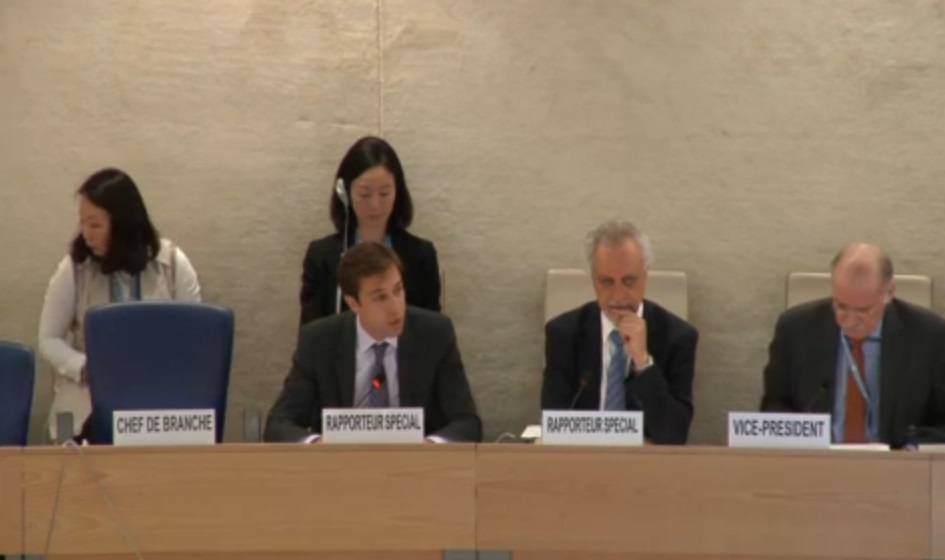United Nations Special Rapporteurs underscore access rights in Human Rights Council interactive dialogue
Work area(s)
In the interactive dialogue on toxic wastes and safe drinking water and sanitation of the Human Rights Council held in Geneva on 16 and 17 September 2015, the Special Rapporteurs on human rights and hazardous substances and wastes, Mr. Başkut Tuncak (Turkey), and on the human right to safe drinking water and sanitation, Mr. Léo Heller (Brazil), highlighted the importance of the rights of access to information, participation and justice in environmental matters for their respective mandates.

In the interactive dialogue on toxic wastes and safe drinking water and sanitation of the Human Rights Council held in Geneva on 16 and 17 September 2015, the Special Rapporteurs on human rights and hazardous substances and wastes, Mr. Başkut Tuncak (Turkey), and on the human right to safe drinking water and sanitation, Mr. Léo Heller (Brazil), highlighted the importance of the rights of access to information, participation and justice in environmental matters for their respective mandates.
The Special Rapporteur on human rights and hazardous substances and wastes presented his report on the right to information on hazardous substances and wastes in which he clarified the scope and content of the right to information throughout the life cycle of hazardous substances and wastes and identified several challenges that have emerged in realizing this right, as well as potential solutions to these problems. The Special Rapporteur also discussed several obligations of States and the responsibilities of business in relation to implementing the right to information on hazardous substances and wastes. He recalled that information is critical to the enjoyment of human rights and fundamental to good governance. Furthermore, he underscored that information about hazardous substances is essential to prevent risks, mitigate harms, conduct focused research on safer alternatives, provide treatment and remedy, and ensure transparency, participation and consent in decision- and policymaking.
For his part, the Special Rapporteur on the human right to safe drinking water and sanitation made public the priorities for his mandate for 2014-2017 and emphasized the principles of non-discrimination and equality, access to information and transparency, participation, accountability, sustainability, and progressive realization and non-retrogression.
The delegates of Chile, Ecuador and Panama, among others, also intervened in the interactive dialogue.